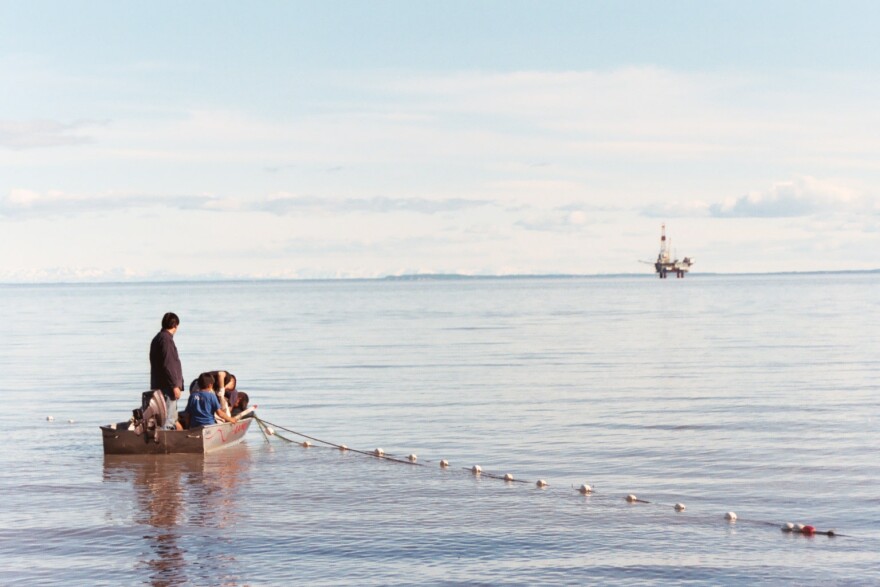Last week the Trump administration proposed to drastically increase the amount of Alaska waters open for oil and gas leasing. Along with keeping Cook Inlet open, it would also make areas near Kodiak and the Gulf of Alaska available for drilling, both of which are currently closed. Yet, it’s unclear if companies will be interested in drilling there even if the plan is approved. Still, the move worries local environmentalists and fishermen.
Trump’s administration’s plan would mean big changes for most of Alaska’s coastal communities. They might see water open to drilling that has never been open before. But for Homer residents, the nearest federal water has already been open. Stephen Wackowski, the senior advisor for Alaskan affairs for the interior secretary, said, “We just had a lease sale in the Cook Inlet this last summer that was very successful. It was our first successful lease sale in 20 years.”
The new plan would not open up Kachemak Bay, which is considered state waters. But it would allow drilling in nearby Gulf of Alaska and Kodiak.
“I think you're going to see us go down the path to not shortcut any environmental protections but to allow for companies and stakeholders to participate in the wealth of resources we have in our offshore,” he said.
But Trump’s administration proposed rolling back safety regulation measures. Regardless, it’s unclear if any companies will want to drill in these areas.
“Right now there hasn't been high interest from the industry and nor is there high potential,” Wackowski said. “I think what our point is that we put everything on the table to see if industry is interested in that and it's just a plan.”
Despite the uncertainty, the plan still worries local fishermen and environmentalists. Bob Shavelson with the environmental advocacy group Cook Inlet Keeper says it puts the areas at risk of spills.
“It’s well-established whenever you drill for oil, when you transport oil, you spill oil,” he said. “And spilled oil around fisheries is never a good thing. I think you're putting a renewable resource in our fisheries which brings in billions of dollars a year to the U.S. economy against a non-renewable resource.”
Shavelson said if a spill happens in the Gulf or Kodiak, it could travel here. Spills are something commercial Gulf of Alaska fisherman Erik Velsko worries about too.
“You know when you make you're living off the environment, you want to make sure it's treated how you would treat it,” he said. “It doesn’t seem like the oil companies and mining companies really have the environment in their best interests”
Matt Hakala also works as a commercial fisherman in the Gulf. He knows that Alaskan oil could end up fueling his boat one day, but he doesn’t think oil companies can drill responsibly.
“We either need to figure out how to live without oil and just not harvest it or figure out how to get the oil a lot safer than what they got going now,” he said.
The 60-day public comment period for the draft proposal began Monday.





